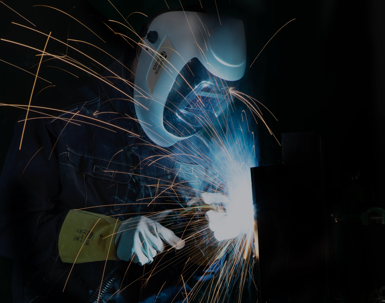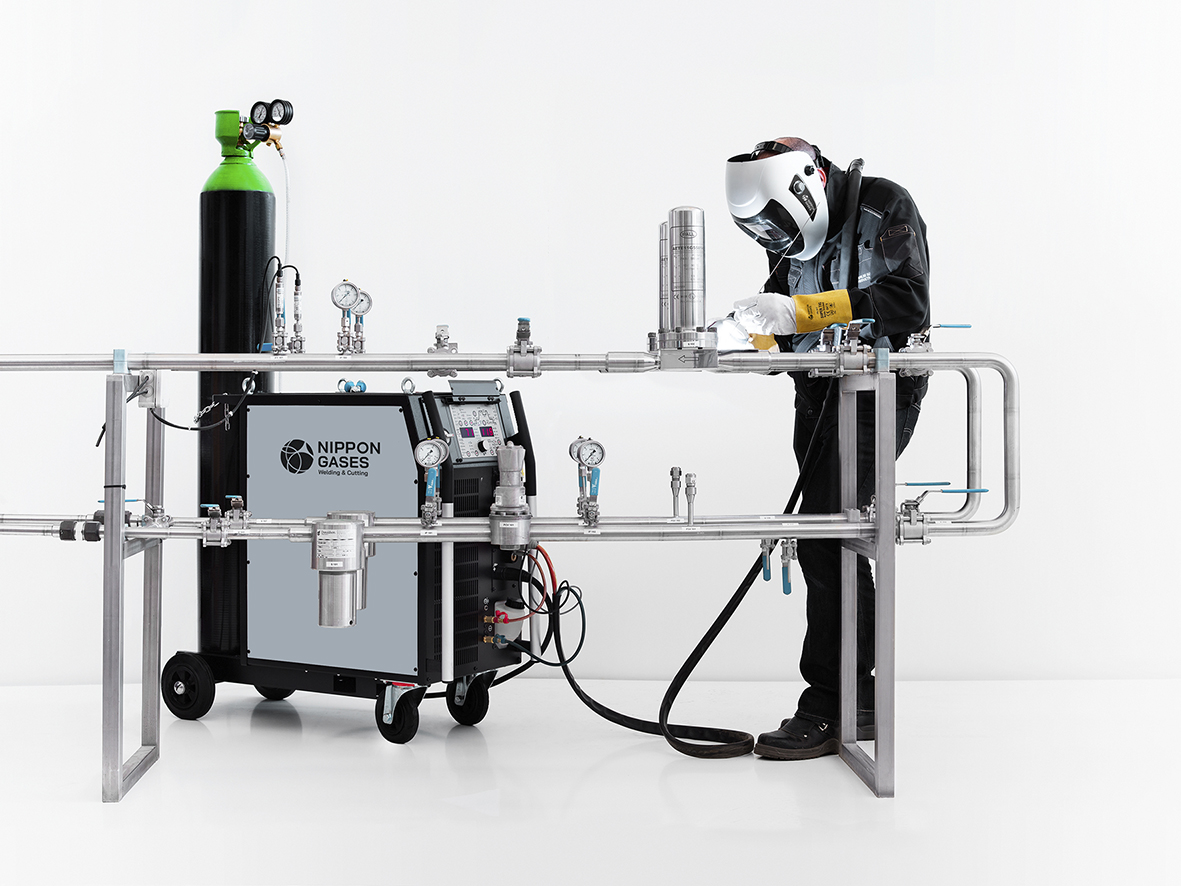The demand of modern industry always requiresgreater competence and production quality
The requests for improvement in thequality of the manufacture of pipes orcontainers have increased exponentiallyin recent years, particularly in thechemical-pharmaceutical, scientific andfood sectors.



Metal reactivity
Every single material requires a
specific root protection gas.
Carbon steel, stainless steel, Duplex and Superduplex,
aluminium, and many other gases have different
metallurgical characteristics and reactivity to air.
The choice of the inert gas or reducing mixture, must be
made by following the compatibility criterion of the
material to weld and critical aspects of the atmosphere
generated inside the tank - tube to weld.
There are on the market, devices and analysers allowing
a correct and safe use of the reducing gas, thus avoiding
waste of gas or incorrect use, which voids the operating
result.
Nippon Gases is able to meet the specific requests to generate onsite mixtures through the design and construction of specific gas mixers also, including remote control.
Potential production of the right onsite gas mixture.
pay specificattention when working on pipes or welding storage tanks. In these cases, safety equipment cases
must be adequate to constantly assess the risk of triggers.
Even the flushing equipment is essential for correct use and significant savings of the quantities of gas applied.In this application, it's fundamental to manage the flow,which must be laminar and not turbulent. To obtain thiseffect the gas flow must be low.


Testing
